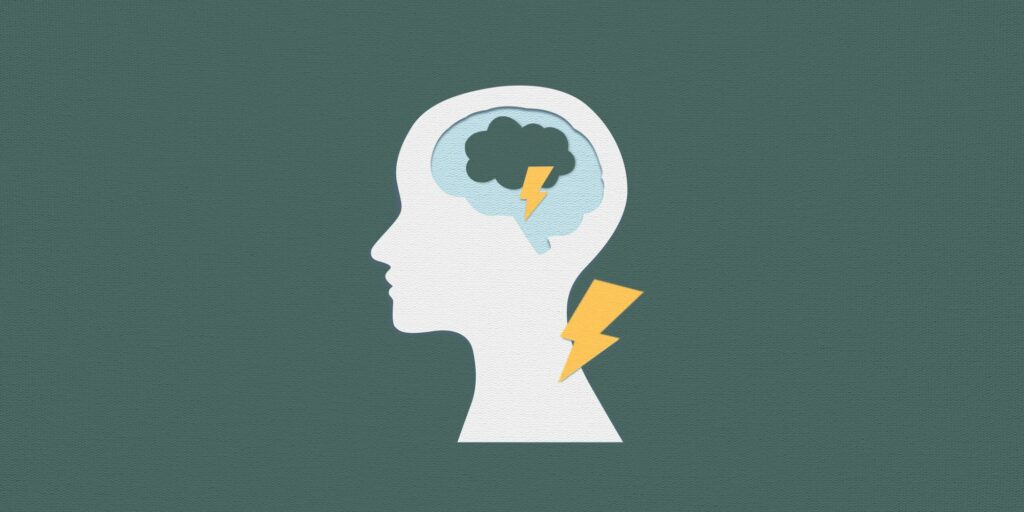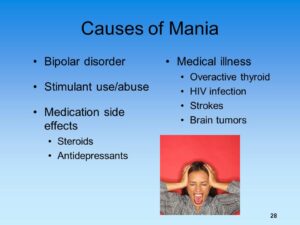Contents
What Is Mania?
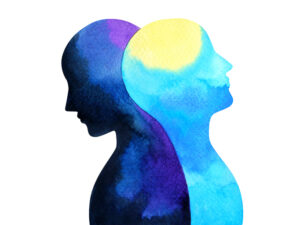 Mania is characterized by a very high energy level, racing thoughts, and decreased need for sleep. Recurrent manic symptoms are known as Bipolar Disorder or “manic depression.” This disorder occurs when people experience periods of extreme moods that affect behavior and thinking. These different moods are called mania, hypomania, and depression. While most people with bipolar disorder will cycle between phases of depression and mania over the course of their lives, approximately 50 percent will exhibit symptoms in a more rapid and severe form than others. Manic symptoms are a result of an overactive or dysregulated dopaminergic system in the brain. This can lead to symptoms such as increased energy, racing thoughts, and decreased need for sleep.
Mania is characterized by a very high energy level, racing thoughts, and decreased need for sleep. Recurrent manic symptoms are known as Bipolar Disorder or “manic depression.” This disorder occurs when people experience periods of extreme moods that affect behavior and thinking. These different moods are called mania, hypomania, and depression. While most people with bipolar disorder will cycle between phases of depression and mania over the course of their lives, approximately 50 percent will exhibit symptoms in a more rapid and severe form than others. Manic symptoms are a result of an overactive or dysregulated dopaminergic system in the brain. This can lead to symptoms such as increased energy, racing thoughts, and decreased need for sleep.
One of the most common symptoms of mania is increased energy levels. Mania is also characterized by rapid thoughts, which can result in people having an elevated sense of self-importance and decreased need to sleep. Manic individuals experience intrusive thoughts and may engage in risky behavior such as gambling or spending money recklessly.
Mild manic symptoms usually pass without professional help and do not cause any long-term damage if they are managed properly. However, manic episodes can be dangerous and harmful to both the individual experiencing them and those around them if they are not treated early on.
Early Signs of Mania
It is important to be able to recognize signs of mania as this will help to evaluate if a person is experiencing manic episodes. Here are some early signs of mania:
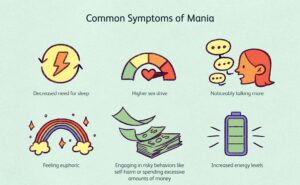
- Rapid thoughts
- Increased energy
- The decreased need for sleep
- Intrusive thoughts
- Reckless behavior such as gambling or spending money recklessly.
Manic Symptoms
Manic symptoms are experienced when a person is in a manic or hypomanic state. These symptoms vary from individual to individual, and people may experience some effects but not others. If an episode of mania occurs after a depressive episode, the symptoms of mania will be more pronounced than if it were experienced without depression before.
Mania/hypomania shows several symptoms like-
Insomnia
Insomnia is a very common symptom of mania. Mania individuals have a very high energy level and also have racing thoughts so they feel highly energetic often while being awake during the night. This results in difficulty sleeping.
Anxiety
Mania individuals can be extremely anxious and restless at times which usually worsens their insomnia symptoms. An increased sense of self-importance is common in mania, which leads to anxiety attacks from time to time
Depression
Depression occurs as a result of manic episodes because it disrupts daily life activities and concentration levels acutely decrease, causing a significant amount of stress for people who are already going through difficult phases in their lives
Inability to listen to other people
Mania individuals often feel that others are not listening to them and their thoughts or ideas. This suffers their concentration levels and ultimately makes it difficult for them to listen to other people’s opinions
Decreased motivation
Mania also causes decreased motivation in an individual, which affects the functioning of a person at their job or school. Lack of focus can cause problems at work or school because someone might forget important things that they were supposed to do during the day.
Impulsivity
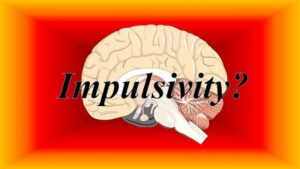
Mania causes impulsivity in a person and they often keep on jumping from one idea to another without thinking about the possible consequences. This results in reckless behavior such as gambling or spending money recklessly.
Not taking care of yourself
Mania is very energizing and it makes the person not want to take care of themselves. This leads to disorganized daily life activities which can cause problems at work or school
Rapid thoughts
Mania causes an individual’s brain to function more quickly than usual. This results in racing thoughts that are often difficult for the person experiencing them to control
Increased sex drive
Mania increases sexual libido in a person because they feel highly energetic due to their increased energy levels. They may desire sexual intercourse with other individuals, even those who are not their partners
Causes of Mania
There are several factors that can increase the risk of developing mania. These include things that affect brain chemistry.
Researchers have found abnormalities in the levels of dopamine, serotonin, and glutamate in individuals diagnosed with bipolar disorder. Dopamine is one neurotransmitter that has been linked to both schizophrenia and bipolar disorder, but there are other neurotransmitters whose role is less understood when it comes to manic symptoms.
Some of the leading causes of mania include:
- Bipolar Disorder
 Stressful life events such as moving, divorce, losing a job, or death of a loved one
Stressful life events such as moving, divorce, losing a job, or death of a loved one- Abnormal levels of brain chemicals such as neurotransmitters
- Genetics – those with family members who have bipolar disorder are more likely to suffer from this
- Brain abnormalities
- Family history of mental illness
- Psychological stressors/trauma
- Substance abuse or withdrawal
There are several neurotransmitters that play a role in manic symptoms, but dopamine may be the most influential and is heavily linked with bipolar disorder. Researchers show that an overactive or dysregulated dopaminergic system can lead to some manic symptoms such as increased energy, racing thoughts, and decreased need for sleep.
Dopamine is involved in many main psychiatric disorders such as schizophrenia and Parkinson’s disease. While there is no current diagnostic test for mania due to its complexity, one may use rating scales such as the Young Mania Rating Scale.
Risk Factors for Manic Symptoms
Risk factors for manic symptoms are unclear, but are likely are age, history of psychosis, head injury, substance abuse, and certain psychiatric disorders.
There are several factors that can increase the risk of developing mania symptoms including things that affect brain chemistry.
If you are experiencing manic symptoms, it’s important to seek medical attention. So the treatment starts as soon as possible. There are no tests that can diagnose someone with mania because there are no fast-acting screening tools that take into account mood state.
Preventing Mania Symptoms
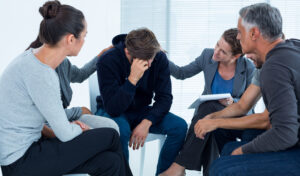
Signs that your loved one may be experiencing mania include dramatic changes in mood, sleep patterns, and behavior. Treatment for manic episodes typically involves anti-psychotic medication with close supervision by health care professionals. These medications can lessen the severity of the symptoms but cannot cure bipolar disorder itself. There are also specific things you can do at home to help your loved one through their episode. These are some ways to prevent manic symptoms-
1. Remain in close contact with your loved ones, checking up on them frequently
2. Help your loved one get plenty of sleep each night and avoid stimulants such as caffeine, nicotine, or amphetamines that can trigger manic symptoms
3. Remind yourself that the symptoms are not your fault and you do not control them. Take care of yourself – attend self-help groups or meet up with friends to make sure you aren’t neglecting your own needs while caring for someone else.
What To Do If You Experience Manic Symptoms?
These are some ways to prevent manic symptoms:
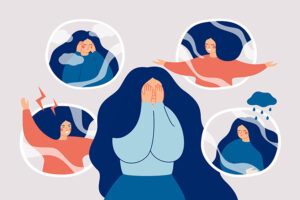
1) Avoid overstimulation. If you are easily stimulated, be mindful of this and stay away from excess stimuli (e.g., too many people in your space, loud noises).
2) Avoid alcohol and drug use. Many types of drugs have the potential to induce manic symptoms. Alcohol intake may also trigger mania or hypomania, so much that it can become a chronic problem for many individuals who have bipolar disorder.
3) Eat well-balanced meals at regular times during the day to ensure your body gets important nutrients every day.
4) Exercise regularly to keep your mind clear and decrease stress levels by releasing certain chemicals in your brain called neurotransmitters.
5) Take out each day for yourself without feeling guilty. Whether it’s five minutes or one hour, schedule some time for yourself that you can look forward to each day.
6) Limit your caffeine intake (e.g., tea, coffee), as it may induce mania in people who are sensitive to stimulants like caffeine.
7) Reduce your work hours and take a break from stressful activities during the summer months. When symptoms of mania tend to occur more frequently due to increased exposure to sunlight.
8) Seek support from friends and family members by sharing what you’re going through with them. So they can provide necessary feedback on how best to cope with the situation. Remove yourself from a bad relationship if needed so you can be free from further stress and conflict.
How To Help A Person With Manic Symptoms?
 Though this is not an exhaustive list, there are some general ways you can care for yourself and the person experiencing manic symptoms:
Though this is not an exhaustive list, there are some general ways you can care for yourself and the person experiencing manic symptoms:
1. Be patient – It may feel like your loved one is ‘on speed’. But they’re not trying to get on your nerves or upset you – it’s part of the disorder. They won’t be able to control their behavior and that includes what they say and do towards others.
2. Recognize the Bipolar – When we feel really happy we often want others around us to be equally excited. But people experiencing mania need time alone and to indulge in their own thoughts when they are in a manic state.
3. Be Consistent – If there are household rules, adhere to them when your loved one is experiencing mania or they will be less likely to feel guilty about breaking the rules
4. Limit Stressors – When possible it’s best to avoid taking on new activities and responsibilities with your loved one because this might trigger another episode
5. Ask for Help – Dealing with bipolar disorder can be an emotional roller-coaster so it’s okay to ask for help from others around you if you find that you’re struggling with how to care for your loved one
6. Keep Things Light-Moods should remain positive during times of mania so try not to take on serious conversations when your loved one is experiencing an episode – watching comedies, going out for ice cream, or playing a board game together can be more productive
7. Keep Notes on Symptoms – In case of emergency, it’s helpful to write down the symptoms of mania. So that paramedics or doctors can quickly assess what type of treatment will be best.
Treatment for Manic Symptoms
People experiencing manic symptoms should seek out psychiatric help immediately. There is no test that can diagnose someone with mania because any type of fast-acting screening needs to take into account the person’s mood state or risk mistaking a depressive episode for an elevated mood state. Signs that your loved one may be experiencing mania include dramatic changes in mood, sleep patterns, and behavior.
Treatment for manic episodes typically involves anti-psychotic medication with close supervision by health care professionals. These medications can lessen the severity of the symptoms but cannot cure bipolar disorder itself. There are also specific things you can do at home to help your loved one through their episode.
Medication

Pharmaceutical medications help balance the chemicals in the brain by increasing dopamine transmission, hence treating mania.
Lithium carbonate is one of the most popular medications for treating mania. It decreases the symptoms of mania by acting on bipolar cells in the brain.
Therapy
Doctors usually recommend psychiatric treatment alongside medication. Because it helps patients recover faster from their symptoms and also teaches them how they can manage symptoms themselves. Psychiatric counseling often takes place on an outpatient basis, with patients meeting their counselors weekly or biweekly at first and then monthly as time passes by.
A psychiatrist who specializes in mood disorders carries the psychiatric treatment. They assess the symptoms of an individual through mental health evaluations and diagnose them accordingly if necessary before prescribing medication or talking through some other form of therapy depending on the specific requirements of each patient.
A Word From MantraCare
Your mental health — your psychological, emotional, and social well-being — has an impact on every aspect of your life. Positive mental health essentially allows you to effectively deal with life’s everyday challenges.
If you are looking for affordable Online Counseling MantraCare can help: Book a trial therapy session
